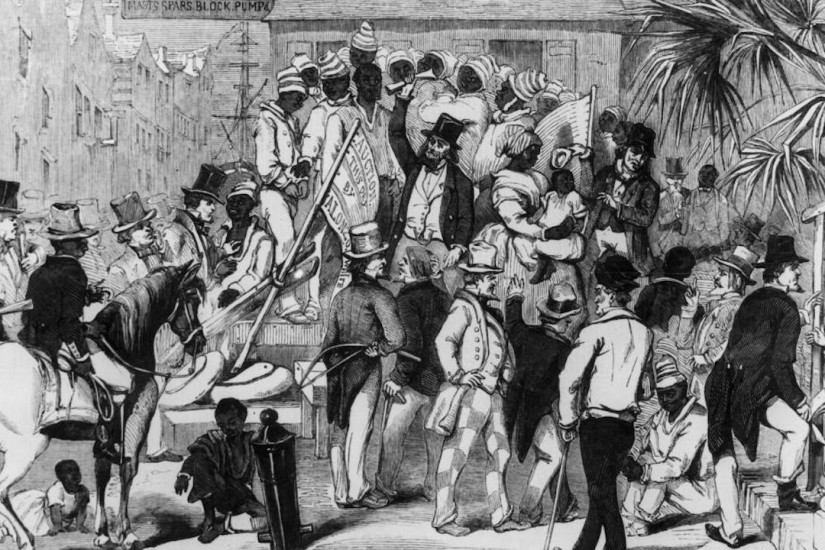Charleston, S.C., has formally denounced slavery and apologized for the port city's role in that evil institution. The City Council voted 7-5 to condemn the industry that had long thrived in Charleston — the entry point for nearly half the slaves who were brought from Africa to the U.S.
A capacity crowd gathered to comment and to witness the council's vote Tuesday, which followed a number of speeches on slavery and its role in building Charleston and adding to American prosperity.
If anyone at the council meeting wanted to see a sign of that legacy, they didn't have to look far: Charleston's City Hall was built by slaves.
More than once, the current plight of migrant families at the U.S. southern border was mentioned, amid discussions of exploiting laborers and treating people of a different race as chattel during the slave era.
Some of the speakers called for restitution; some asked for help in preventing racism from regaining influence; many asked the city to start by putting its name on an official apology.
The council approved a resolution "recognizing, denouncing, and apologizing on behalf of the City of Charleston for the City's role in regulating, supporting and fostering slavery and the resulting atrocities inflicted by the institution of slavery."
The measure also calls for the city to "honor the contributions of those who were enslaved and that assist in ameliorating remaining vestiges of slavery."
Charleston adopted the resolution on Juneteenth, the celebratory anniversary of the end of slavery in the U.S. But several times during Tuesday's session, speakers reminded those present that racism is not a vestige of America's past – and that battles over how the Civil War and slavery are remembered are still being waged.
The vote came days after Charleston marked the third anniversary of the deadly shooting of nine black parishioners at Mother Emanuel AME Church.
"The past is never dead. It's not even the past," Councilman William Dudley Gregorie said, quoting author William Faulkner.
An African-American and a main sponsor of the resolution, Gregorie said, "What reminds us of that is what is going on right now, with brown children who are being torn from their parents and being put into detention camps. I hope you heard me — and it sounds familiar."
